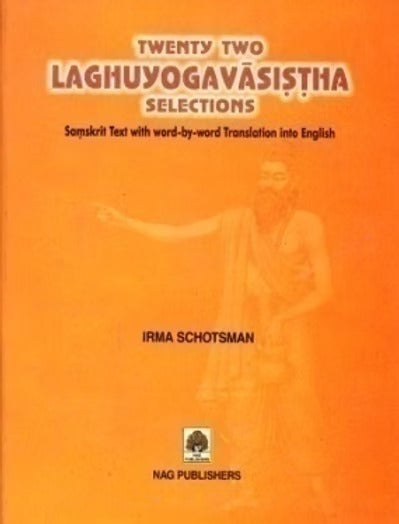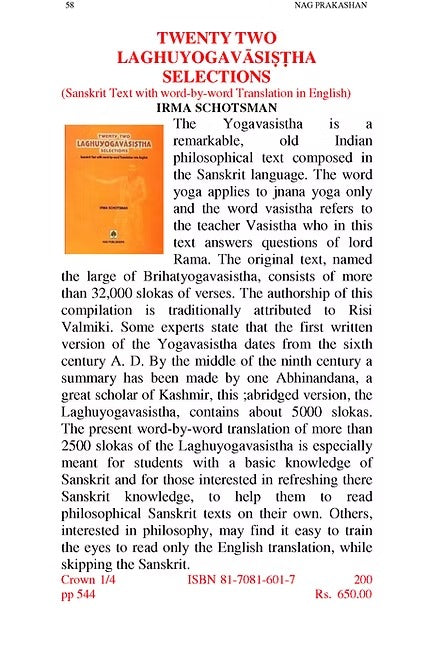TWENTY TWO LAGHUYOGAVĀSIṢṬHA SELECTIONS
TWENTY TWO LAGHUYOGAVĀSIṢṬHA SELECTIONS is backordered and will ship as soon as it is back in stock.
Couldn't load pickup availability
Genuine Products Guarantee
Genuine Products Guarantee
We guarantee 100% genuine products, and if proven otherwise, we will compensate you with 10 times the product's cost.
Delivery and Shipping
Delivery and Shipping
Products are generally ready for dispatch within 1 day and typically reach you in 3 to 5 days.
Book Details:
• Title: Twenty Two Laghuyogavasistha (Sanskrit Text with Word-by-Word Translation into English)
• Author: Irma Schotsman
• ISBN: 8170816017
• Edition: 2005
• Size: Crown 1/4
• Pages: 544
• Publisher: Nag Prakashan
SELECTIONS
(Sanskrit Text with word-by-word Translation in English)
IRMA SCHOTSMAN
The Yogavasistha is a remarkable, old Indian philosophical text composed in the Sanskrit language. The word yoga applies to jnana yoga only and the word vasistha refers to the teacher Vasistha who in this text answers questions of lord Rama. The original text, named the large of Brihatyogavasistha, consists of more than 32,000 slokas of verses. The authorship of this compilation is traditionally attributed to Risi Valmiki. Some experts state that the first written version of the Yogavasistha dates from the sixth century A. D. By the middle of the ninth century a summary has been made by one Abhinandana, a great scholar of Kashmir, this ;abridged version, the Laghuyogavasistha, contains about 5000 slokas. The present word-by-word translation of more than 2500 slokas of the Laghuyogavasistha is especially meant for students with a basic knowledge of Sanskrit and for those interested in refreshing there Sanskrit knowledge, to help them to read philosophical Sanskrit texts on their own. Others, interested in philosophy, may find it easy to train the eyes to read only the English translation, while skipping the Sanskrit.







